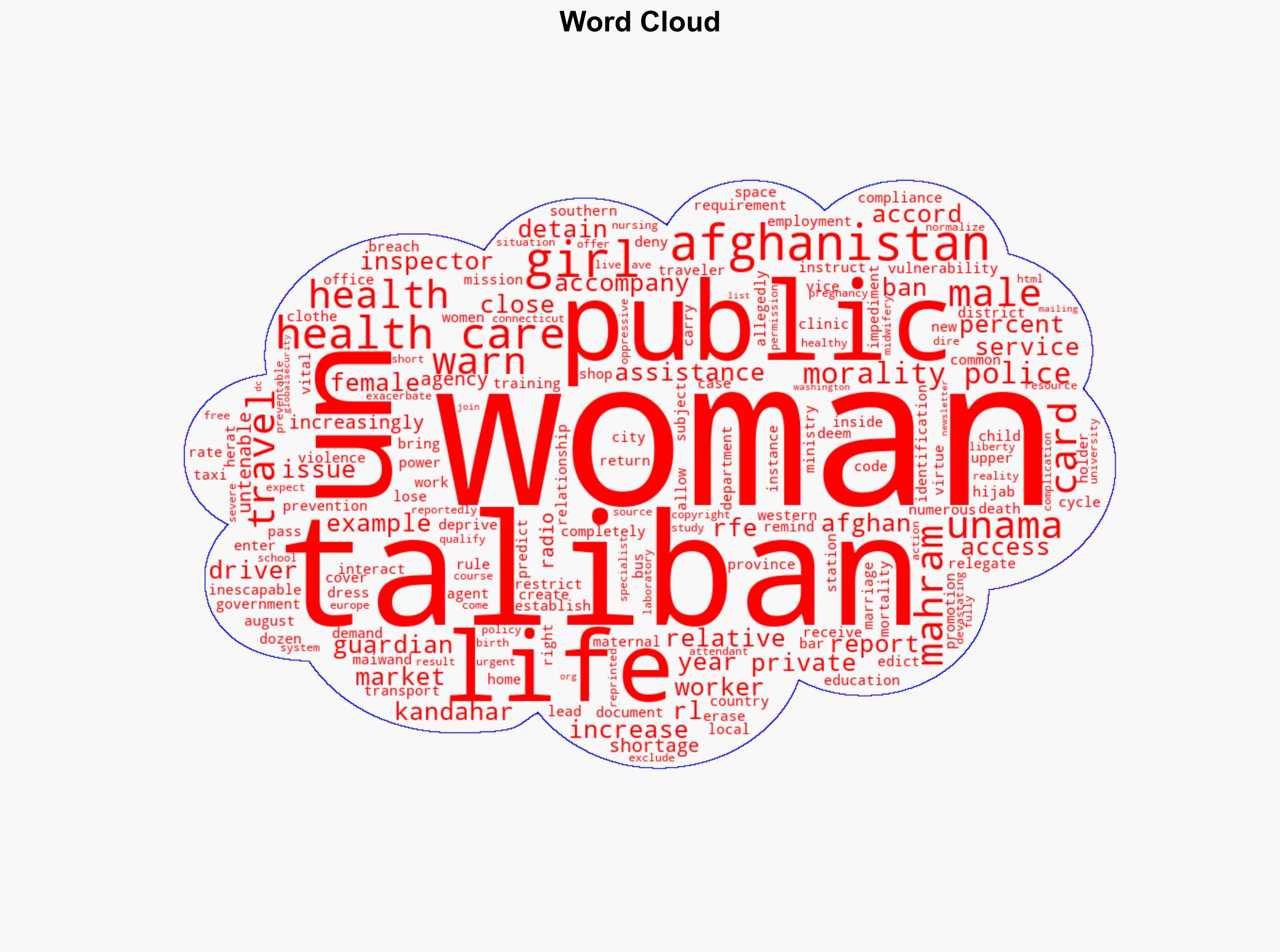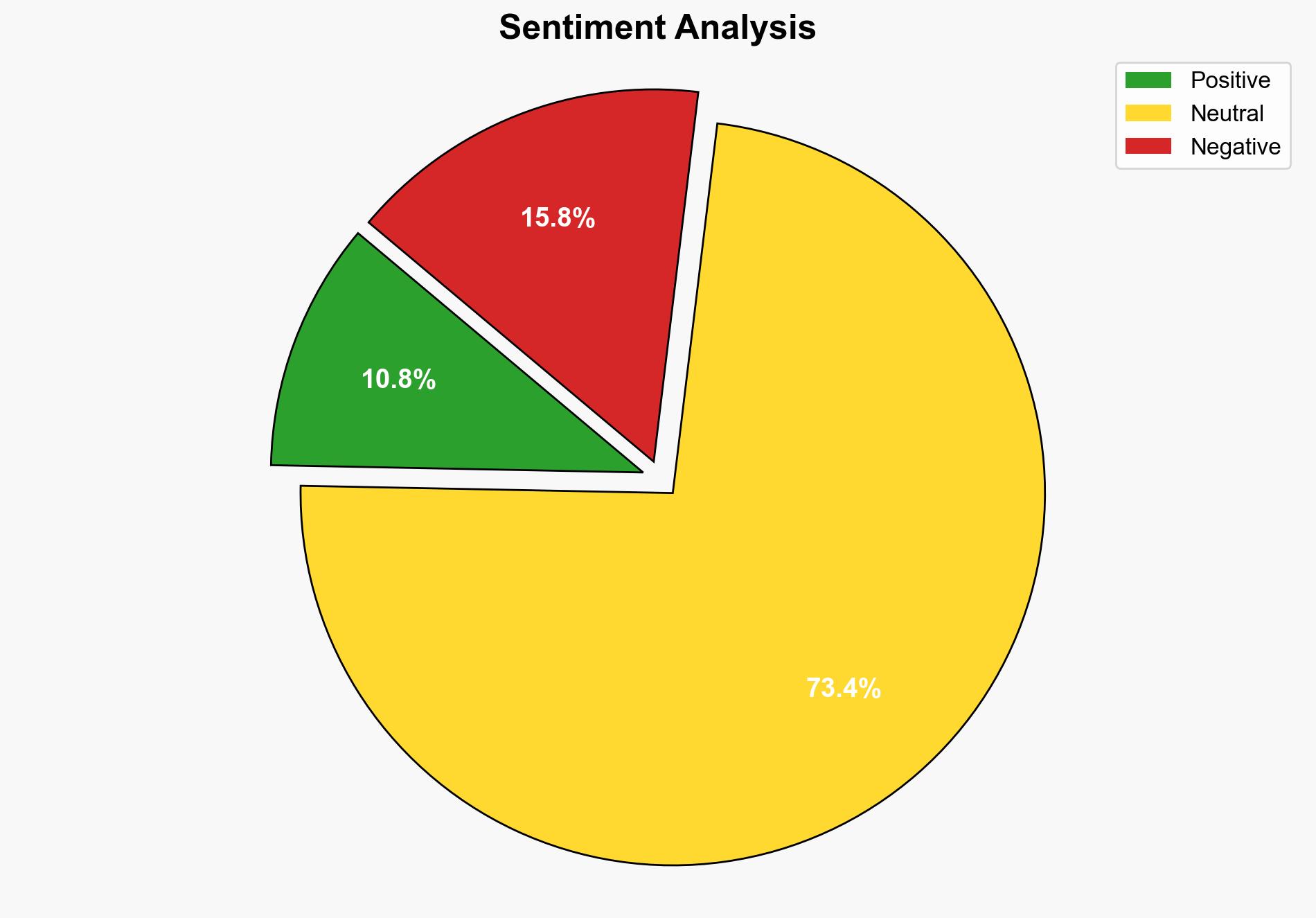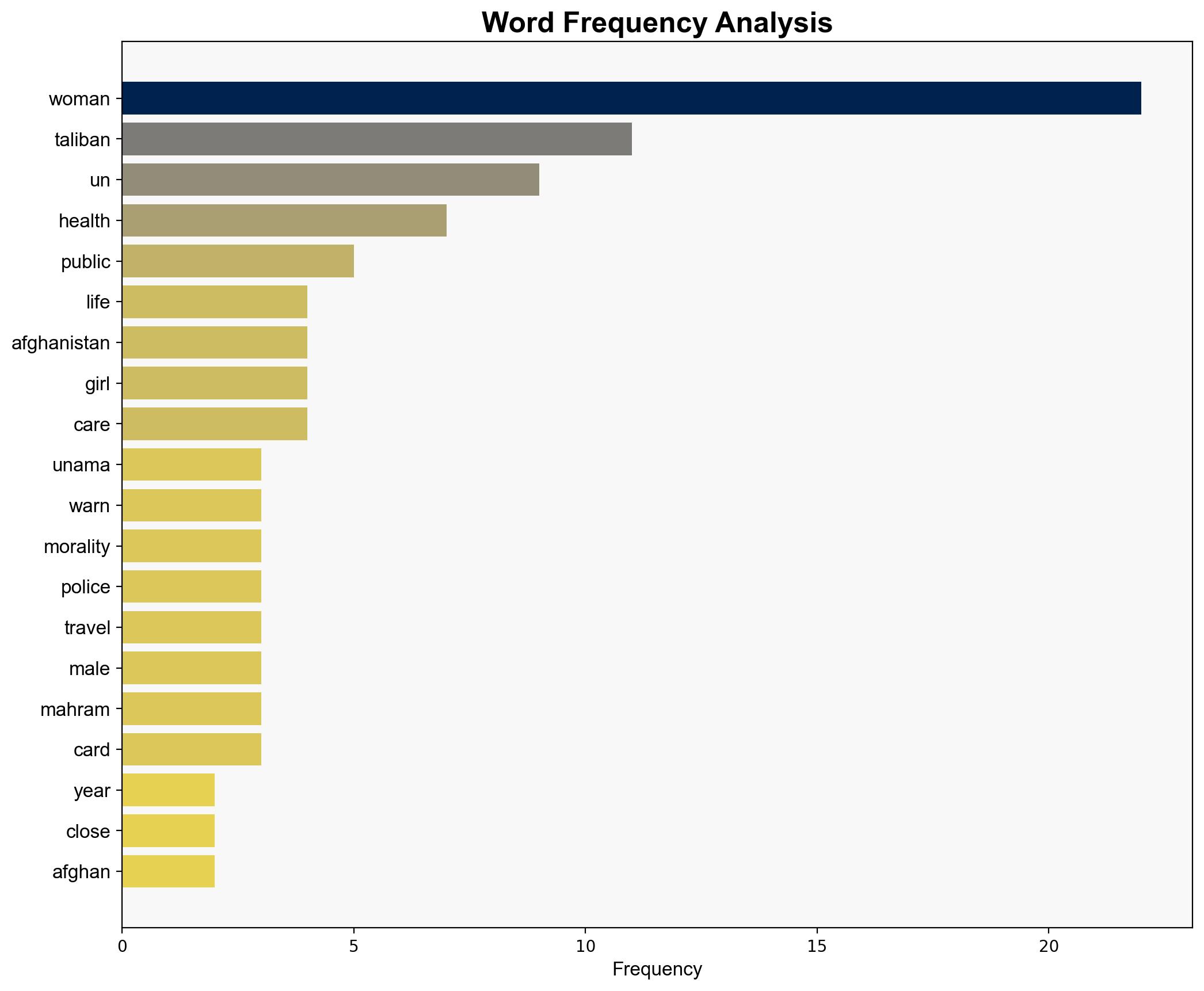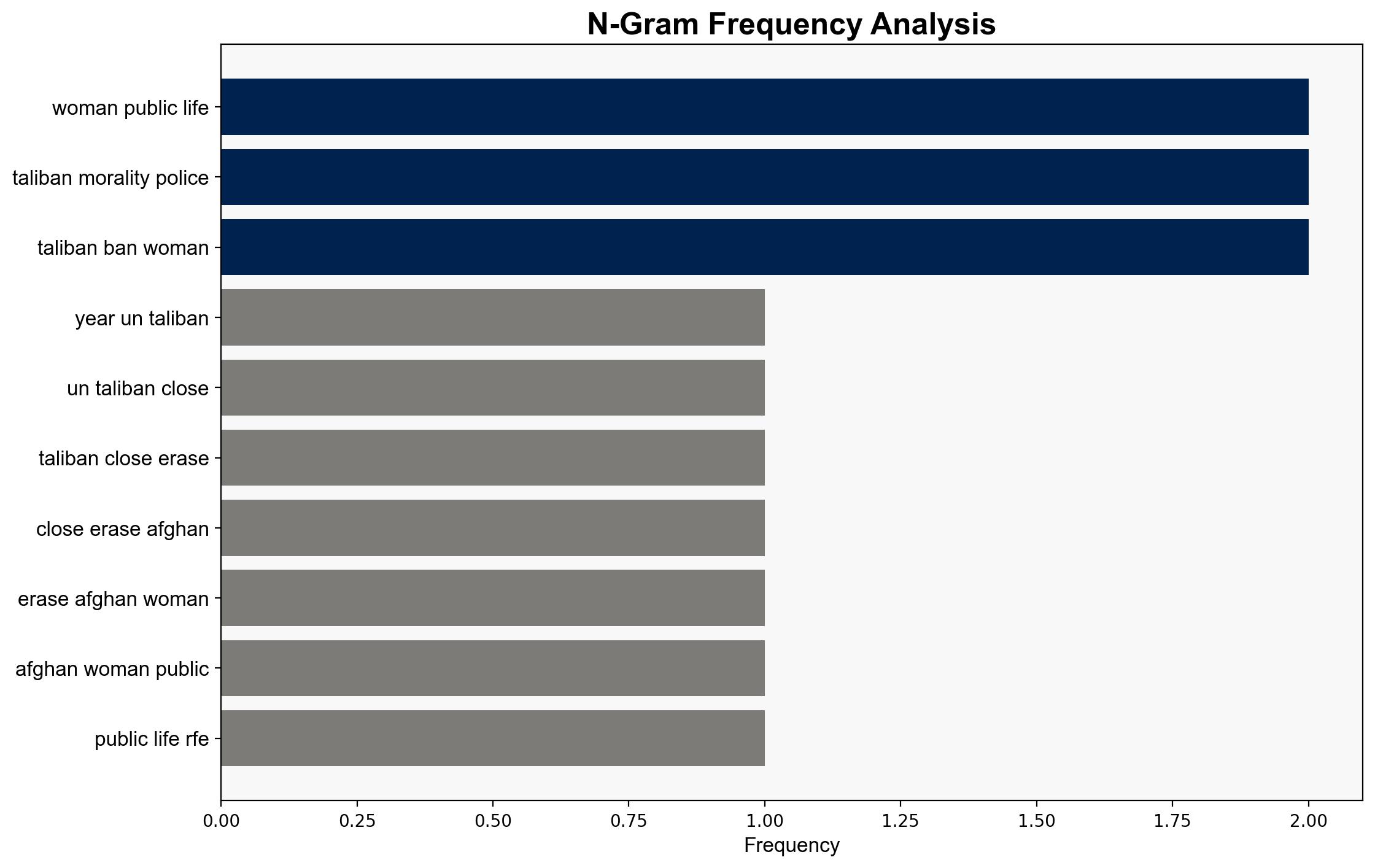Four Years On UN Says Taliban Close To ‘Erasing’ Afghan Women From Public Life – Globalsecurity.org
Published on: 2025-08-14
Intelligence Report: Four Years On UN Says Taliban Close To ‘Erasing’ Afghan Women From Public Life – Globalsecurity.org
1. BLUF (Bottom Line Up Front)
The Taliban’s policies are systematically eroding women’s rights in Afghanistan, potentially leading to severe socio-economic and health crises. The most supported hypothesis suggests these actions are intentional to consolidate power by enforcing strict social control. Confidence level: High. Recommended action: International diplomatic pressure and targeted humanitarian aid to support Afghan women.
2. Competing Hypotheses
1. **Intentional Suppression Hypothesis**: The Taliban’s policies are deliberately designed to suppress women, reinforcing a patriarchal society to consolidate power and control.
2. **Unintended Consequences Hypothesis**: The restrictions on women are primarily a result of the Taliban’s broader governance challenges and not a targeted campaign against women, with unintended socio-economic consequences.
Using ACH 2.0, the Intentional Suppression Hypothesis is better supported due to consistent patterns of targeted restrictions and enforcement by the Taliban’s morality police and edicts.
3. Key Assumptions and Red Flags
– **Assumptions**: The Taliban’s actions are centrally coordinated and reflect a unified strategy. The international community’s response can influence Taliban policies.
– **Red Flags**: Potential underreporting of resistance within Afghanistan. Lack of data on internal Taliban dissent or alternative governance strategies.
– **Blind Spots**: Limited insight into Taliban internal decision-making processes and potential factionalism.
4. Implications and Strategic Risks
The systematic exclusion of women from public life could lead to increased poverty, health crises, and societal instability. This may exacerbate regional security issues, increase refugee flows, and strain international humanitarian resources. The psychological impact on Afghan society could lead to long-term destabilization.
5. Recommendations and Outlook
- Increase diplomatic engagement with regional powers to apply pressure on the Taliban for policy change.
- Expand humanitarian aid focused on women’s health and education, possibly through non-governmental organizations.
- Scenario Projections:
- **Best Case**: International pressure leads to policy relaxation and improved conditions for women.
- **Worst Case**: Continued suppression leads to humanitarian crisis and regional instability.
- **Most Likely**: Incremental improvements in some areas due to international pressure, but overall suppression persists.
6. Key Individuals and Entities
– UN Assistance Mission in Afghanistan (UNAMA)
– Taliban leadership
– UN Women
7. Thematic Tags
national security threats, human rights, regional focus, governance, humanitarian crisis





